Providing medical and sanitation support following devastating floods in Bangladesh
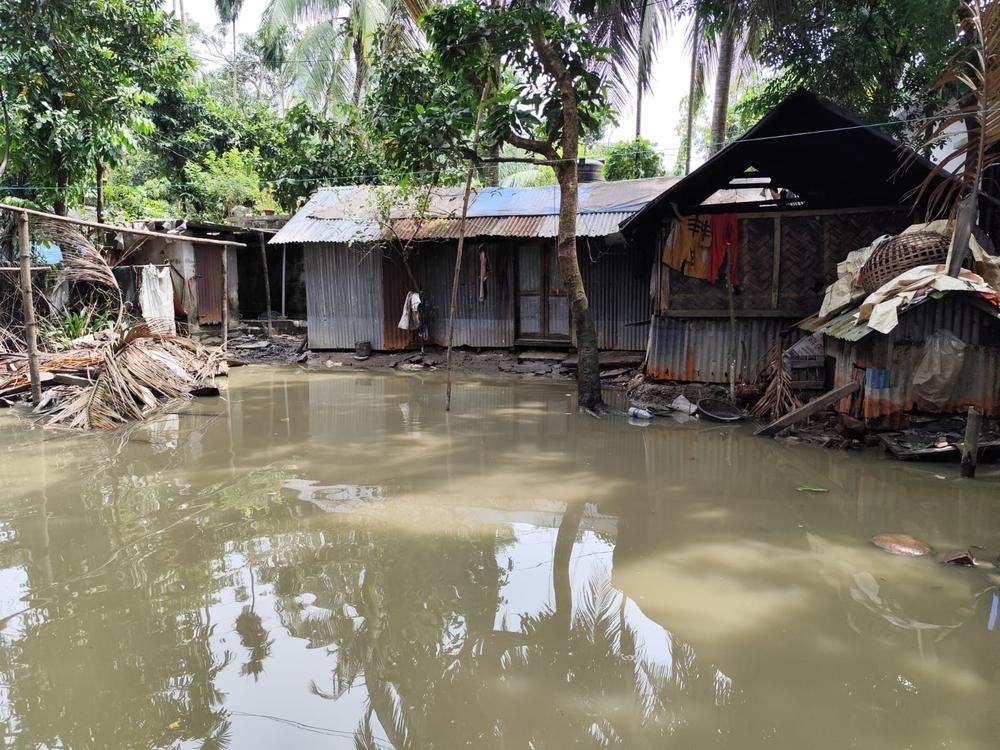
Due to flash flooding in Noakhali, houses, crops and roads were damaged. A yard of a village in Noakhali is submerged by flood water. September 2024. ©Farah Tanjee/MSF
In mid-September, the floodwaters had barely subsided in Noakhali, in southern Bangladesh, when the devastating consequences began to unfold. Among the many people affected was 14-month-old Salman, brought to Noakhali General hospital by his parents. The young boy was ill with diarrhoea, a common risk in the flood-affected region.
“Despite our home escaping the floodwaters, the surrounding area was inundated, rendering our water sources unsafe,” says Javed, Salman’s father.
Like others, the family had no choice but to rely on contaminated water to drink, leading to a widespread outbreak of diarrhoea. Despite initial attempts to treat Salman at home with over-the-counter medications from the village doctor, his condition worsened, prompting his parents to seek urgent medical attention at the hospital supported by Doctors Without Borders/ Médecins Sans Frontières (MSF).
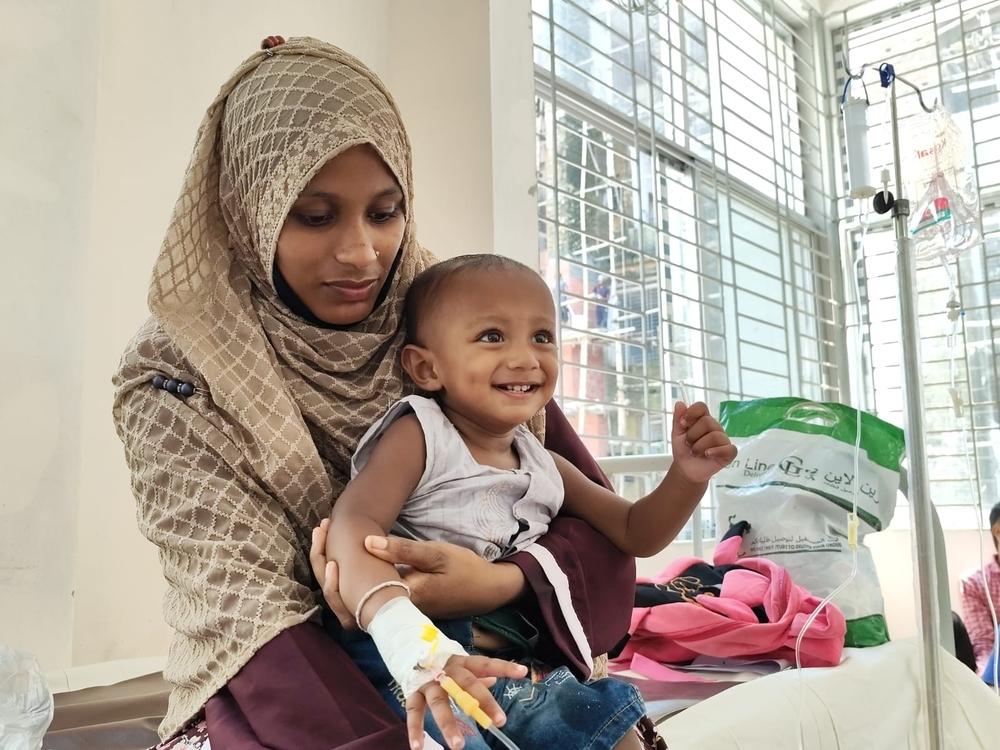
Salman, 14 months old, was suffering from acute watery diarrhoea following the floods in Noakhali district. His parents took him to Noakhali General Hospital for treatment. September 2024. ©Farah Tanjee/MSF
The worst flood in the past two decades in Noakhali
Noakhali and Feni has been grappling with flash floods triggered by relentless monsoonal downpours since late August. The current floods are poised to be one of the most devastating in Noakhali over the past two decades.
“As the floodwaters began to rise, I knew I had to get home, no matter the risks,” says Humayun Ahmed Rifat, from Kabilpur village in Noakhali. “The thought of my family enduring hardship and losing their belongings was unbearable. It was a desperate race against time to salvage what we could.”
Rifat had rushed from Chittagong to his village to support his family. His mother and younger sister were had to fend for themselves as the floodwaters surged into their home.
The floodwaters destroyed homes, farmland, and infrastructure. Roads were submerged, cutting off entire communities and hindering relief efforts. The devastation has been widespread, leaving thousands of people displaced and struggling to cope.
“The floodwaters not only washed away my livelihood but also shattered my hopes,” says Javed. “I invested so much in my fish farm and paddy fields, only to see them swept away by the relentless floods. I have lost everything due to the floods. The financial loss is devastating, but I’m not the only one.”
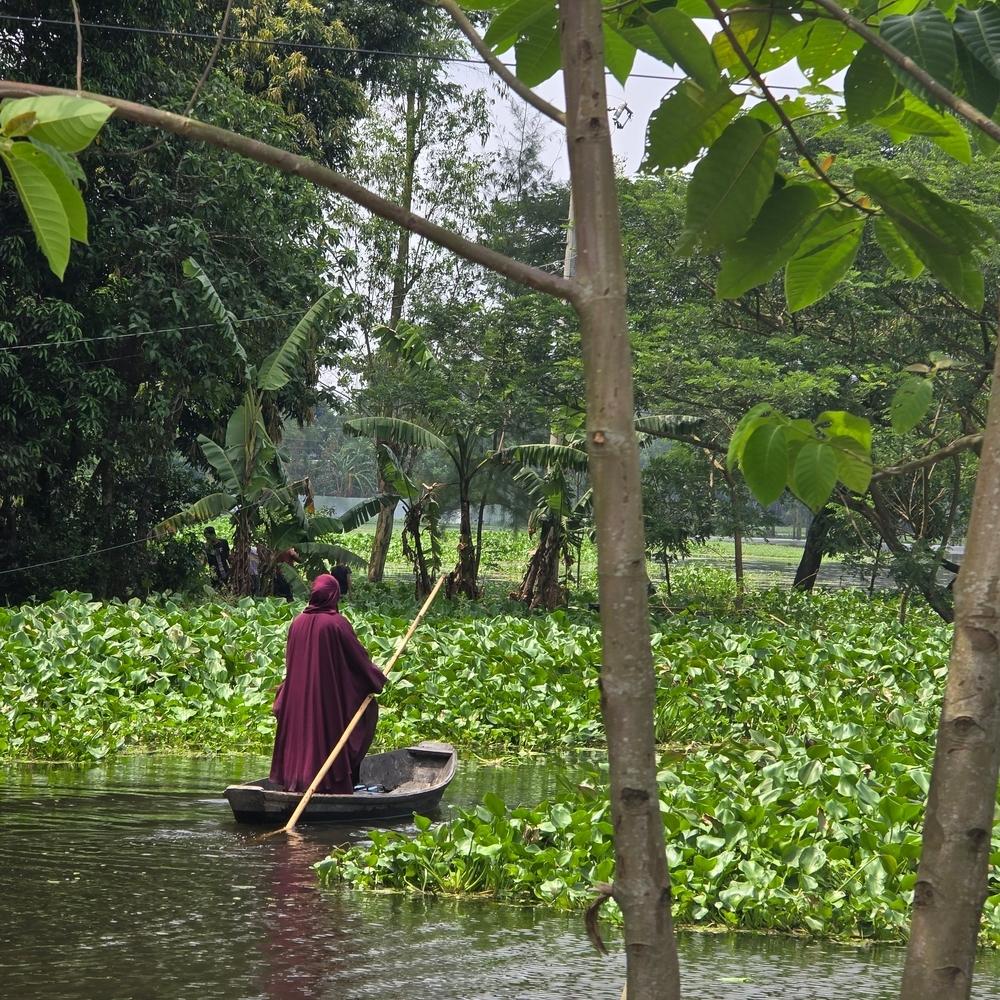
Due to flash flood in Noakhali, roads were damaged and submerged by flood water. People are using boats to go from one place to another. September 2024. ©Farah Tanjee/MSF.
Post flood health issues and fragile water and sanitation system
The floodwaters have created a breeding ground for waterborne diseases, such as diarrhoea and skin infections. The lack of access to clean drinking water and sanitation facilities has exacerbated the public health crisis. Children, elderly people, and women are particularly vulnerable during these emergencies.
In response to the floods, Doctors Without Borders teams launched an emergency response in Noakhali between early September and early October. They focused on the result of their assessment which highlighted the need for urgent medical and water sanitation services.
Jasmine, who is pregnant and from Laxminarayanpur, Maijdee, was forced to flee her flooded home within hours of the floodwaters rising.
“I had to rush to a shelter with my three-year-old son,” she says. “The water rose so quickly; we didn't have time to pack anything.”
“Upon returning home, I was confronted with the daunting task of living in a waterlogged house. As a pregnant woman, I've done my best to be cautious, but the contaminated water has taken a toll on my health,” says Jasmine. “I’d been struggling with diarrhoea and had been forced to use a waterlogged toilet multiple times.”
Jasmine’s brother took her to Noakhali General hospital, where she was admitted as her condition was getting worse.
The 250-bed in-patient department at the hospital was overwhelmed by the surge of people with acute watery diarrhoea. Hospital staff, including the Doctors Without Borders medical team who supported the paediatric and adult wards, worked hard to cope with the increasing demand. Patients were lined up on the floors and beds due to the influx of sick people.
“The hospital was so overcrowded that there was barely any space to walk,” says Pankaj Paul, Doctors Without Borders deputy medical coordinator in Bangladesh. “Hygiene and cleanliness were major concerns with the overwhelming number of patients and their caretakers. The facility far exceeded its capacity.”
“When we began our response, we initially focused on treatment. However, we soon realised that many patients could be discharged after brief observation,” says Paul. “To optimise patient flow and ensure quality care, we implemented a triage system, allowing us to make the best use of available resources.”
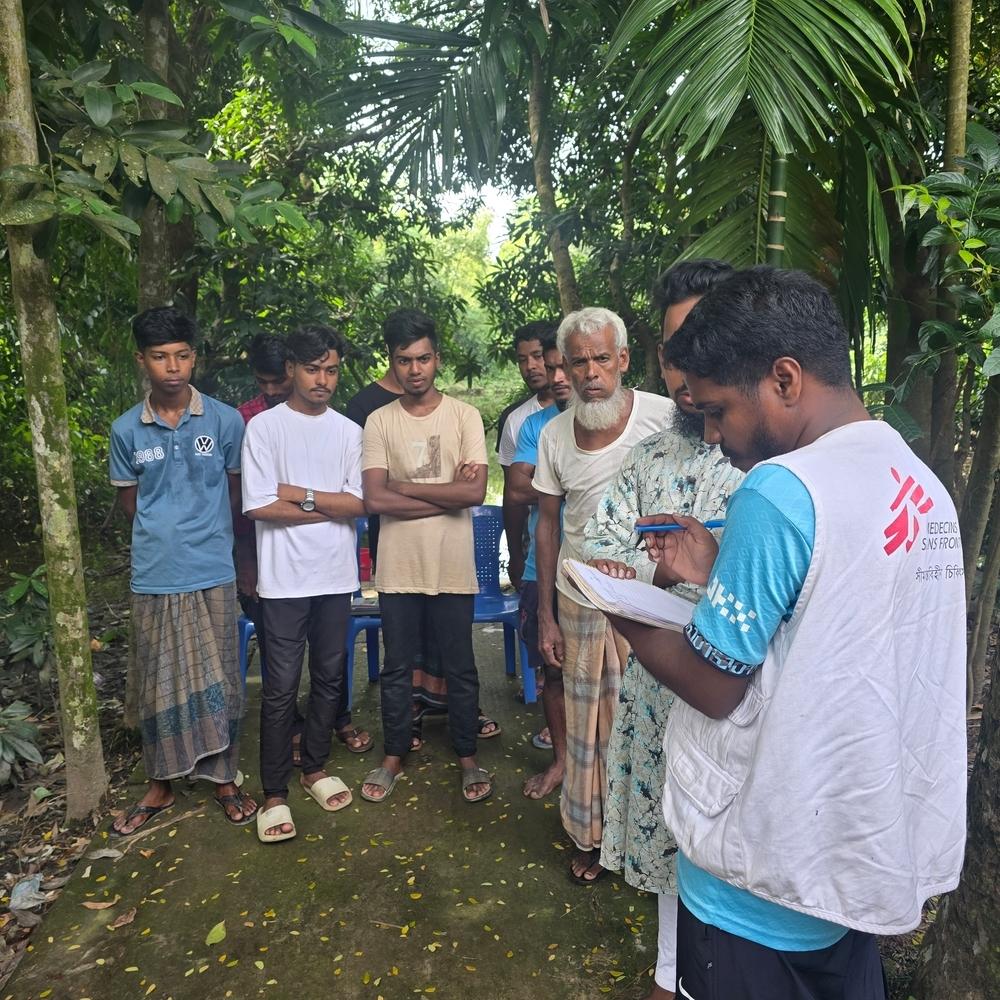
To ensure access to safe drinking water, Doctors Without Borders' water and sanitation team disinfected and repaired broken tubewells, and also disinfected water tanks in the hospital to prevent the spread of disease. Team also provided training to locals on how to disinfect water sources and repair damaged tubewells, and distributed essential equipment for these tasks. September 2024. ©Farah Tanjee/MSF.
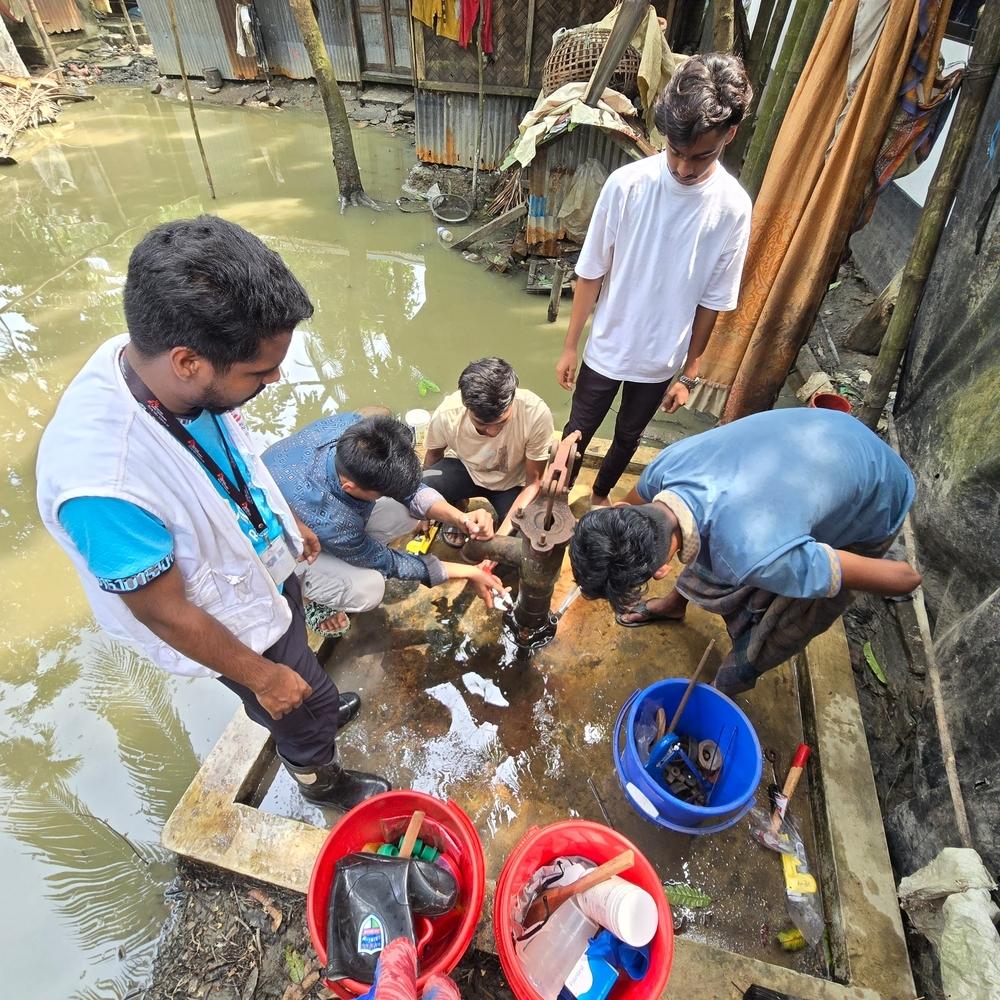
To ensure access to safe drinking water, Doctors Without Borders' water and sanitation team disinfected and repaired broken tubewells, and also disinfected water tanks in the hospital to prevent the spread of disease. Team also provided training to locals on how to disinfect water sources and repair damaged tubewells, and distributed essential equipment for these tasks. September 2024. ©Farah Tanjee/MSF.
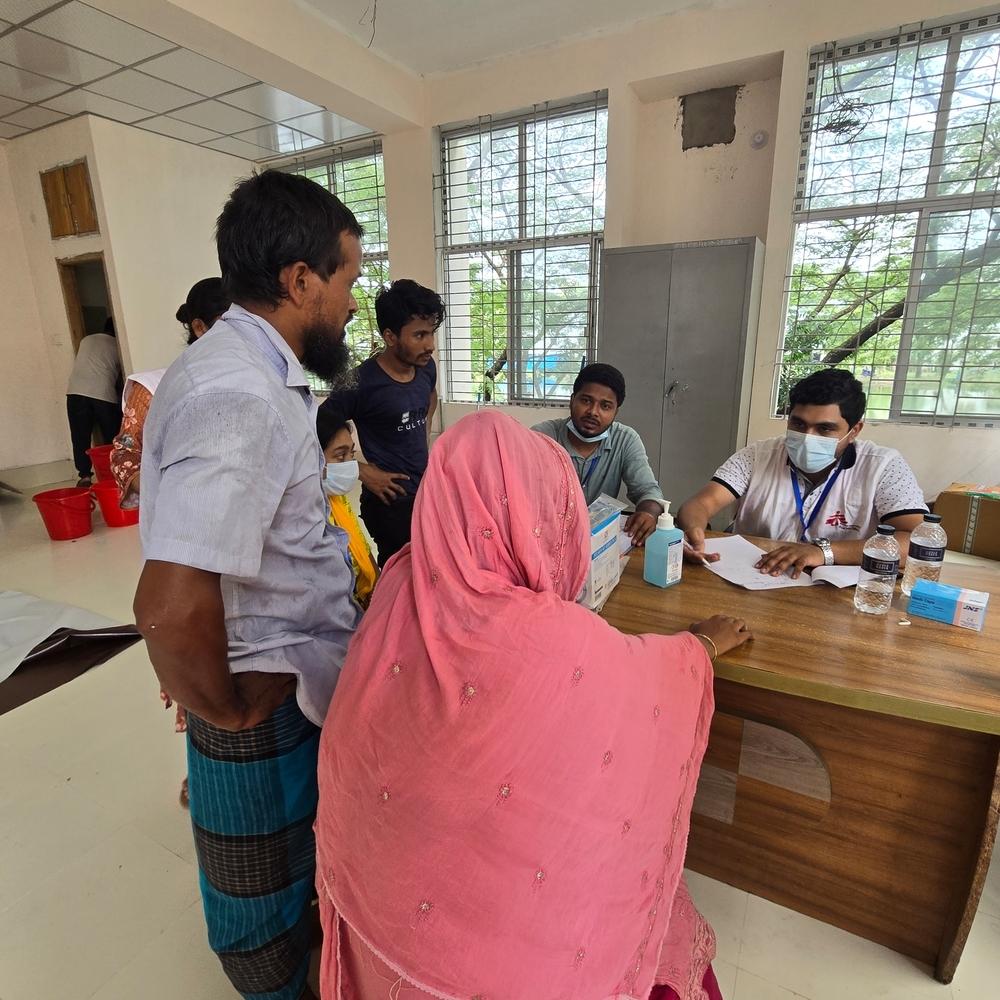
The Doctors Without Borders medical team in Noakhali’s 250-bed Sadar Hospital consulting patients who are suffering from acute watery diarrhea. To optimise patient flow and ensure quality care, Doctors Without Borders implemented triage in the hospital admissions area. September 2024. ©Farah Tanjee/MSF.
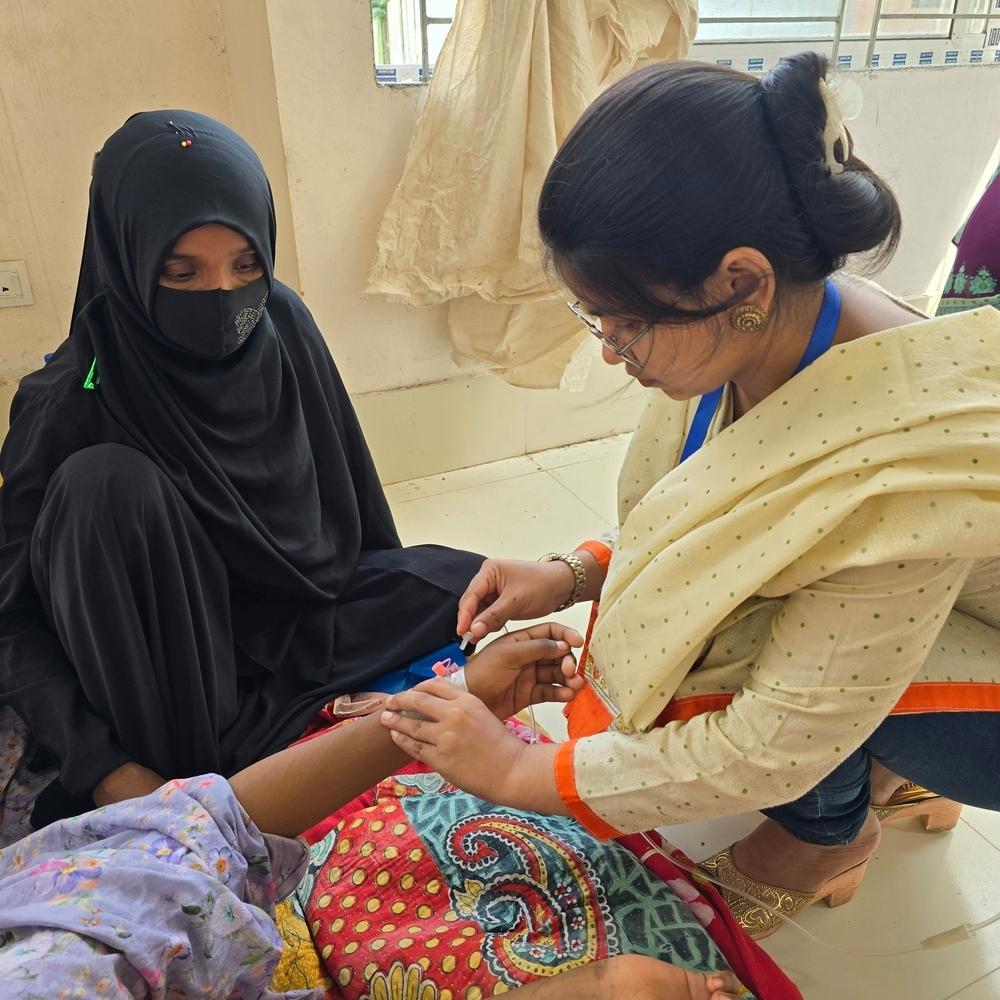
A Doctors Without Borders nurse giving medication and preparing a patient suffering from acute watery diarrhea for a saline injection. The adult diarrhea ward in Noakhali General Hospital following the floods in Noakhali. September 2024. ©Farah Tanjee/MSF.
To ensure access to safe drinking water, the team disinfected and repaired broken tube wells in Noakhali and Feni districts, while also disinfecting water tanks in the hospital to prevent the spread of diseases.
With the support of a local non-governmental organisation, Doctors Without Borders distributed 1,000 kits with items including mosquito nets, torches, soap, washing powder, diapers, toothbrushes, toothpaste, and sanitary napkins, in five locations of Kabirhat upazila (administrative division). In Feni, Doctors Without Borders focused on water and sanitation, disinfecting and repairing tube wells. The water and sanitation team also trained 45 volunteer teams on disinfection and repairs in 45 villages across Noakhali and Feni.
“At the beginning of our emergency response, there were over 500 patients per week at Noakhali General Hospital, but by the time we finished our project, that number was 300,” said Niladri Chakma, Doctors Without Borders emergency project coordinator in Bangladesh. “As we handed over the project to the Ministry of Health, we are confident that the efforts we've put in the hospital, such as the triage system, will lead to a more efficient access to health care.”
Doctors Without Borders closed the emergency intervention on 4 October but we remain committed to supporting national and local authorities in Bangladesh when natural disasters arise, as we continue to work in Cox’s Bazar and in Dhaka.